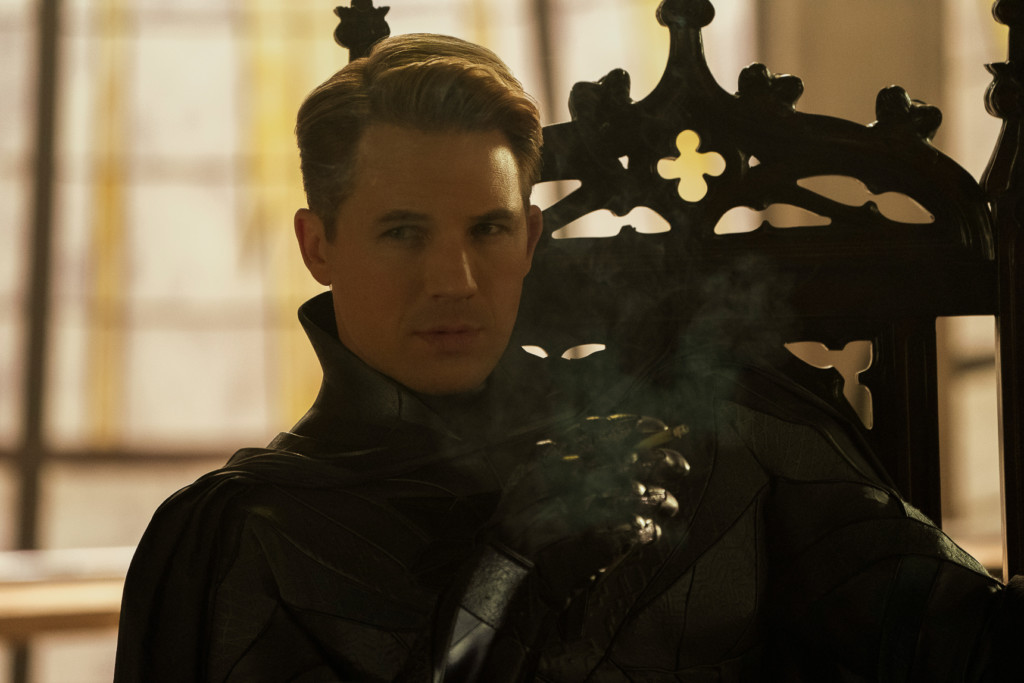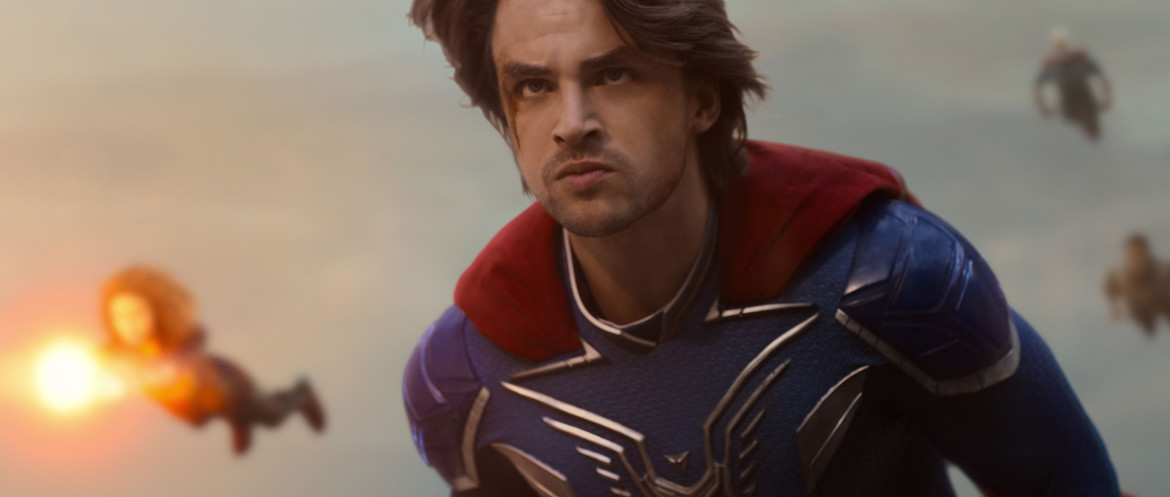Matt Lanter
What attracted you to this project?
They wanted to pay me. [Laughs] But really, to be a part of this creative team was a dream. And you know, of course, Netflix is producing quality, original content. I think you can probably ask any actor right now, and everybody kind of knows that the streaming services and Netflix really are making this high-quality programming.
I’ve been a part of a lot of traditional network television, and things just feel very formulaic in a way—network notes, [the] timing of things, exposition of dialogue. Some of that isn’t as focused on streamers; you kind of tell the creative story that you want to tell. For example, our episode lengths are all different. I think one is like 45 minutes. The other one is like, I don’t know, 27 minutes or something. I think that’s really unique. I think that’s really cool to be a part of a process where you’re not worried about time. You just tell the story you want to tell.
And I mean, of course, I’d be lying if I didn’t say that the thought of being a superhero was pretty intriguing. I know we have a lot of superhero shows and movies out there, but in the big scheme of things, as an actor to be able to be a superhero is pretty rare. So, the thought of that is also pretty cool too. And just to be a part of something that’s so big and something that seems to have so much potential—I truly think that the show and Millar world as a whole has a chance to be just massive.
How have your past roles influenced the way you went about playing this one?
Anakin [Skywalker] is, as a human story, at its core, good versus evil. It’s dark, and it’s light. And, of course, good versus evil is a biblical story. So, there’s a lot of similarities. George has a big fall from grace, [and] Anakin kind of has this fall from grace. They always think they’re doing the right thing. You know, of course, there was the small detail of Anakin murdering children, but that’s not something we’re gonna see George do. But there are always parallels—it’s funny because I find myself seeing Anakin in a lot of characters that I read today. Vader is one of the most notorious and hated villains in all of storytelling, but he’s always justified, right? I mean, I think any good villain is justified in what they’re doing. And I think if they believe they’re justified in doing the right thing, I think the audience is going to have some sort of empathy for that character. So, yes, there are certainly parallels.

The friendship between George and Sheldon is very significant in this story. How did you build that chemistry behind the scenes?
Well, Josh is a great guy. He’s just a salt of the earth dude, just a very normal guy. He’s easy to be friends with. I feel like he and I, in a lot of ways, are similar. It’s easy to play that friendship on-screen. It is an important dynamic. The bond I think that George feels with Sheldon is everything to him. I really wanted to make sure to show a strong bond with Sheldon. George is the most loyal friend. You’ll see him very early on, Sheldon’s talking crazy, and he wants to travel to this island. And George says, “Okay, I got your back, let’s go, let’s do it. I’m your buddy.” George is just willing to drop everything for that friendship and that bond that he’s got because he believes in his friend.
How did you relate to the show’s themes of justice and equality, especially right now in our history?
I think it sort of parallels this idea right now that, as a society, there are maybe some things that we need to change and some things that aren’t working. And I think it’s interesting how Sheldon is struggling with the idea that there’s a black and there’s a white, and I’m going with white and white—this is the truth, this is the way, this is justice. And I just think that life isn’t like that. There are shades of gray everywhere. And I think that’s what Sheldon is failing to see is the shades of gray. And so, it’s interesting how it’s sort of paralleling what’s going on. It’s a very human story of growth and discovering new ways to get along.
These Q&As have been edited for length and clarity.
